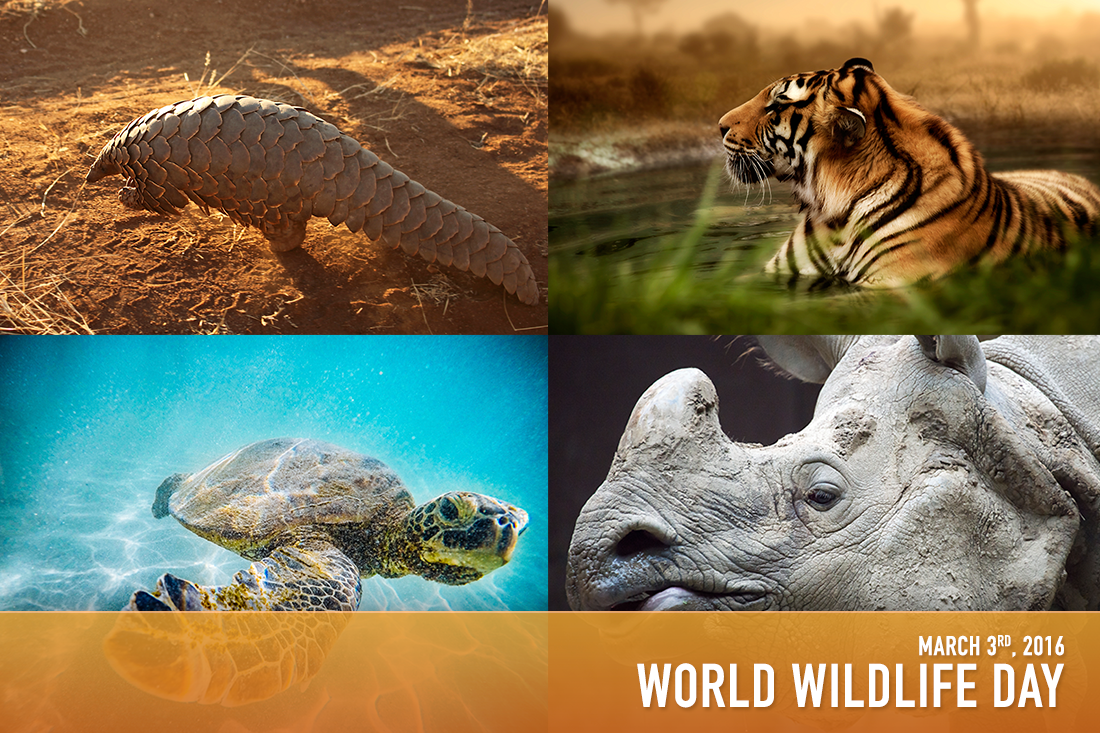
- By U.S. Trade Representative Michael Froman
The loss of wildlife—be it from poaching or other human activities—is a global crisis. On World Wildlife Day, we have an opportunity to pause, recognize threats like wildlife trafficking, and commit ourselves to policies and actions that can help change the course.
Protecting wildlife is an ethical, economic, and national security necessity.
Each day about 100 elephants are killed by poachers, and moved through the black market by traffickers with ties to some of the world’s terrorist organizations and criminal syndicates. Meanwhile, the lesser-known pangolin, which has the tragic distinction of being the world’s most trafficked species, are being captured, killed, and consumed at an alarming rates—an estimated one million having been poached in the last ten years—because some believe their scales have medicinal benefits and their meat is considered a delicacy.
President Obama takes these threats seriously and has marshalled the full power of the United States in his National Strategy to Combat Wildlife Trafficking. The strategy is a whole-of-government approach that pools resources from agencies like the Fish & Wildlife Service and Customs & Border Protection, and combines those resources with new tools like those we have developed in the Trans-Pacific Partnership to combat wildlife trafficking and other threats facing wildlife.
Working together, we can make a real difference. For our part at USTR, increasing trade and investment and supporting economic development can also create positive spillovers that help protect wildlife. When there are more jobs, food security, and opportunities, people will not have to turn to poaching and illegal trade. Supporting legal trade in all goods means taking a stand against illegal trade of all kinds, including of wildlife, at airports, ports, and borders. Likewise, commitments to combat corruption disrupts criminal networks of all kinds.
High-standard trade agreements, such as the Trans-Pacific Partnership, can give a big boost to global efforts to address this crisis. To this end, TPP includes commitments to effectively enforce environmental and conservation laws and creates a platform for cooperation to scale up and enhance regional efforts to combat wildlife trafficking.
Our mission to protect wildlife is a truly global effort. For example, we have a history of cooperation on wildlife trafficking and ivory with the Chinese through the Strategic and Economic Dialogue and will continue to prioritize wildlife in this dialogue. With our African partners, we are exploring opportunities to expand cooperation on environmental issues.
Global challenges require global solutions. Done right, trade agreements are among our most powerful tools for combatting wildlife trafficking.
For more background on how we are tackling environmental challenges through trade and protecting wildlife:
- Read more about the role of trade in the first annual Progress Assessment on the implementation of the President’s National Strategy for Combatting Wildlife Trafficking
- TPP in the Wild Fact Sheet
- TPP for the Sea Fact Sheet
- TPP for the Trees Fact Sheet
- What They're Saying - TPP Environmental Protections
- Tackling Environmental Challenges Through Trade
- U.S. Trade Representative Michael Froman and Congressman Sam Farr Highlight the Environmental and Economic Benefits of the Trans-Pacific Partnership
- CITES and Trade Agreements – Partnering to Combat Wildlife Crime and to Achieve Sustainable Development
- On the ground in Gabon: The path forward for trade in Africa
- IUU Fishing and Seafood Fraud Action Plan: Using Trade to Combat Illegal Fishing
- National Strategy to Combat Wildlife Trafficking Implementation Plan: Using Trade Agreements to Fight Wildlife Trafficking







